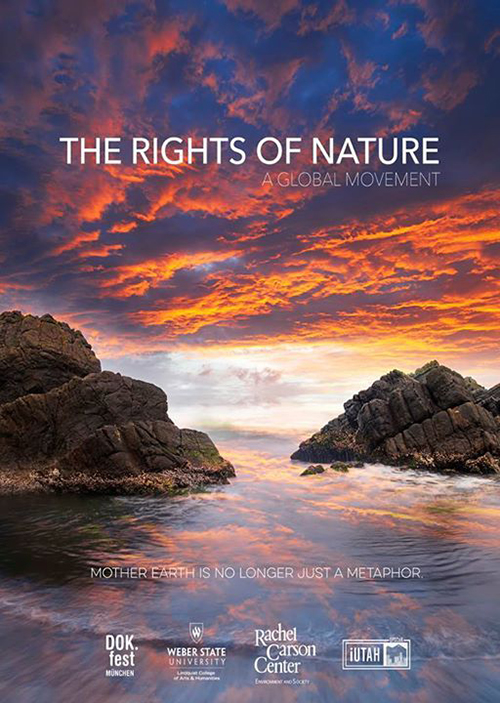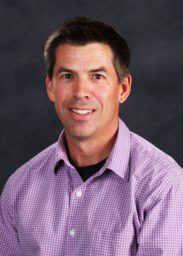
| NYWI HOME PAGE | VISITING WRITERS & EVENTS INDEX |
| Film screening and discussion: "The Rights of Nature: A Global Movement" |
Monday, April 22, 2019
Discussion — 4:15 p.m., Multi-Purpose Room, Campus Center West Addition, 1400 Washington Ave., Albany. See map.
Film screening/Q&A with co-director Hal Crimmel — 7:30 p.m., Page Hall, 135 Western Avenue, Downtown Campus, Albany NY 12203 See map.
 |
Free and open to the public.
(United States, 2018, 52 minutes, color) Directed by Isaac Goeckeritz, María Valeria Berro and Hal Crimmel.
Is Nature entitled to legal rights? The documentary, THE RIGHTS OF NATURE: A GLOBAL MOVEMENT, shot in Ecuador, New Zealand and Santa Monica, California, focuses on a growing environmental initiative where natural areas are given legal rights that can be enforced by people, governments and communities.
As pressures on ecosystems mount and as conventional laws seem increasingly inadequate to address environmental degradation, communities, cities, regions and countries around the world are turning to a new legal strategy known as The Rights of Nature.
“Nature often has legal rights as codified in environmental laws, but granting nature legal personhood is a different story,” co-director Crimmel said in a statement, “The main difference is that a Rights of Nature framework typically grants legal personhood status to nature, meaning that a river, for instance, would have the same rights as a person.”
Constitutional reforms adopted in Ecuador in 2008 and Bolivia in 2010 have helped recognize nature as a legal entity, and partnerships between the Māori and the government of New Zealand have led to personhood status for rivers, lakes and forests, and a renewed sense of balance between people and nature.
In February, the Lake Erie Bill of Rights ballot initiative was approved by voters in Toledo, Ohio, in what is being seen as "the first rights-based legislation aimed at protecting a whole US ecosystem: the lake, its tributaries, and the many species that live off it."
 |
| Hal Crimmel |
Crimmel, co-director, co-producer and screenwriter of THE RIGHTS OF NATURE, earned his M.A. (1993) and Ph.D. (1997) in English at the University at Albany. A former graduate intern at the NYS Writers Institute, he is chair of the English Department at Weber State University in Ogden, Utah, where he is a specialist in the intersections of literature and environmental issues.
Crimmel is the author of Dinosaur: Four Seasons on the Green and Yampa Rivers, (2007) and co-editor of Teaching About Place: Learning from the Land, (2008) and Conversations with W. S. Merwin (2015), a collection of interviews with the former US Poet Laureate and environmental conservationist.
Cosponsored by the UAlbany Office of Sustainability and the UAlbany English Department.
The screening is sponsored by the New York State Writers Institute as part of its Classic Film Series, presented with support from Marc Guggenheim, UAlbany Class of ‘92.
Watch the trailer
Hal Crimmel on "The Nature of Beverages and Landscape Transformation"